ECONOMICS : MICRO ECONOMICS THEORY III
Harvard University
All 6 results
Sort by
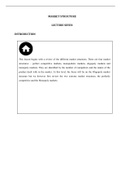
-
MARKET STRUCTURE : MICRO-ECONOMICS THEORY III
- Class notes • 10 pages • 2021
-
- $12.49
- + learn more
OLIGOPOLY We have so far investigated two important forms of market structures: pure competition, where there are typically many small competitors and pure monopoly, where there is only one large firm in the market. However, much of the world lies between these two extremes. Often there are a number of competitors in the market, but not too many as to regard each of them as having a negligible effect on price. This is the situation known as oligopoly.
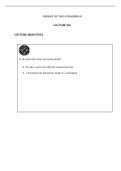
-
THEORY OF THE CONSUMER II : MICRO-ECONOMICS THEORY III
- Class notes • 10 pages • 2021
-
- $12.49
- + learn more
In this lesson, the consumer is depicted as an agent who allocates his/her income in such a manner that maximum utility is derived by consuming goods and services. A consumer who seeks to maximize utility subject to a given budget also succeeds in minimizing expenditure subject to achieving highest possible utility
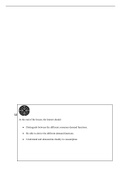
-
THE CONSUMER THEORY/BEHAVIOR. MICRO-ECONOMICS THEORY III
- Class notes • 16 pages • 2021
-
- $11.49
- + learn more
In this lesson, the consumer is depicted as an agent who allocates his/her income in such a manner that maximum utility is derived by consuming goods and services. A consumer who seeks to maximize utility subject to a given budget also succeeds in minimizing expenditure subject to achieving highest possible utility
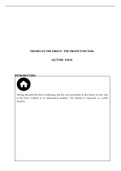
-
THEORY OF THE FIRM IV: THE PROFIF FUNCTION. ( MICRO-ECONOMICS THEORY III)
- Class notes • 12 pages • 2021
-
- $12.49
- + learn more
PROPERTIES OF THE PROFIT FUNCTION (i) The profits are non-negative i.e. a producer never accepts negative profits in the long run (ii) Its non-decreasing in output price, if p and p'are two output prices and that p p' the profits evaluated: p,w p'w (iii) The profit function is non-increasing in input prices i.e. if w and w' are two vectors or sets of input prices and w w' , then p,w pw'
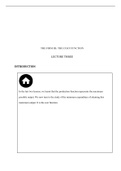
-
THE FIRM III: THE COST FUNCTION ( MICRO-ECONOMICS THEORY III)
- Class notes • 14 pages • 2021
-
- $12.49
- + learn more
We can use exclusively the cost phenomena to reconstruct and to study the properties of the technology. i.e. we can describe the technology entirely in terms of the cost function. The implication here of being able to describe the technology using the cost function is that the specification of a well cost function Cw, yis equivalent to the specification of a well behaved production function f x. We could therefore say that the cost function is a sufficient statistics for the ...
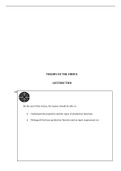
-
THEORY OF THE FIRM II : MICRO-ECONOMICS THEORY III
- Class notes • 17 pages • 2021
-
- $12.49
- + learn more
In this lesson, we have defined and learnt the properties of a production function. We have also learnt the different types of production functions and how under certain assumptions, the CES type may give rise to any other specific production function

How much did you already spend on Stuvia? Imagine there are plenty more of you out there paying for study notes, but this time YOU are the seller. Ka-ching! Discover all about earning on Stuvia


